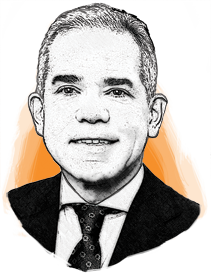October 6, 2017 PAO-M10-17-NI-005
FDA Commissioner Scott Gottlieb is moving forward on his previously announced precertification program for digital health apps. The "Software Precertification (PreCert) Pilot Program” is a voluntary program that will enable the agency to develop a tailored approach toward regulating digital health technology by looking first at the software developer and/or digital health technology developer, rather than primarily at the product, according to FDA.
The goals of the programs are to “enable a modern and tailored approach that allows software iterations and changes to occur in a timely fashion; ensure high quality medical product software throughout the life of the product by enabling companies to demonstrate their embedded culture of quality and organization excellence (CQOE); and be a program that learns and adapts and can adjust key elements and measure based on the effectiveness of the program.”
FDA’s Center for Devices and Radiological Health Entrepreneurs-in-Residence (EIR) program will support and develop the Software Precertification Pilot Program, which is part of the agency’s Digital Health Innovation Action Plan, announced in August 2017.
Most recently, FDA confirmed that numerous high-tech (Apple, Fitbit, Samsung, etc.) and pharmaceutical companies (Johnson & Johnson, Roche, Pear Therapeutics, etc.) have joined the Software Precertification Pilot Program.
As part of the program, precertified companies will be given an abbreviated regulatory path to market compared to the extended times currently required for apps considered to be medical devices. Precertification will be awarded after the agency reviews a company's software design, validation and maintenance. Companies that are granted precertification may not have to file applications, and if they do, only for shortened versions, before introducing new digital health tools.
These initial participants will also help FDA “shape” the precertification program. They are expected to share information with FDA on how they develop, test and maintain software and allow agency staff to visit their sites to discuss their quality management systems, including the mechanisms used for collecting post-market reports.
The hope is that the program will reduce approval—and thus development—times for digital health technologies, which like other apps, are updated frequently. According to Google Co-founder and Alphabet President Sergey Brin, device regulation is "painful." Google CEO Tim Cook said in 2015, that “We don't want to put the Watch through the [FDA] process. It would hold us back from innovating too much, the cycles are too long.” The pilot program, however, is starting out with a focus on software, not hardware, so problems with review times for digital health devices will remain an issue for now. It could, however, allow more rapid innovation of health-based software tools.

Guy supports the success of life science organizations by identifying synergies across research, content, marketing and communications resources to drive value for clients. With over 30 years of education and marketing experience and 18 years in the life sciences alone, Guy leads our editorial standards for client content, Pharma’s Almanac and Nice Insight research-based industry content as well as external communications for clients. Having served as head of global marketing and communications for a CMO, he also brings critical insight and guidance to all communications. Guy holds a Masters degree from Columbia University.